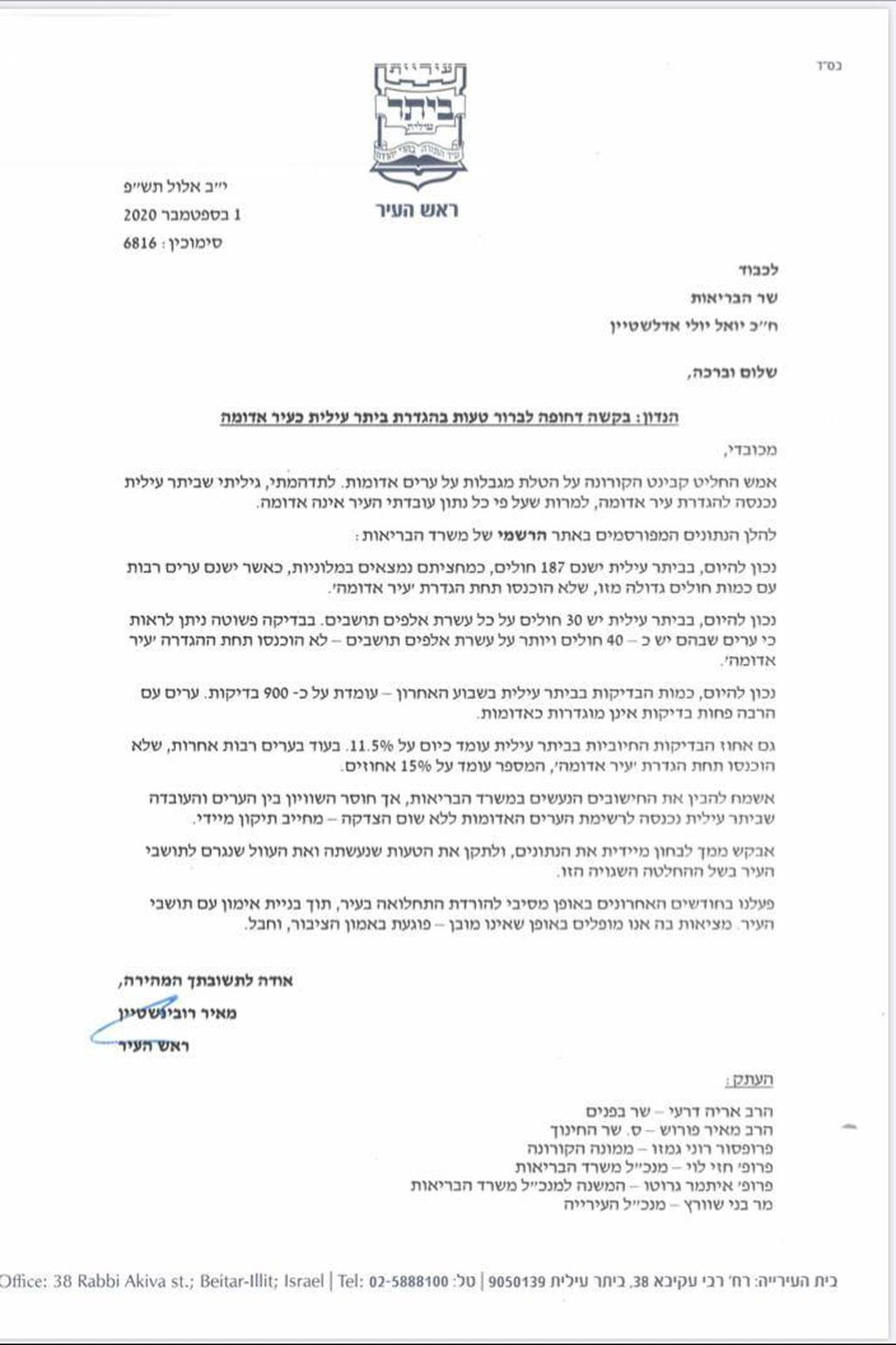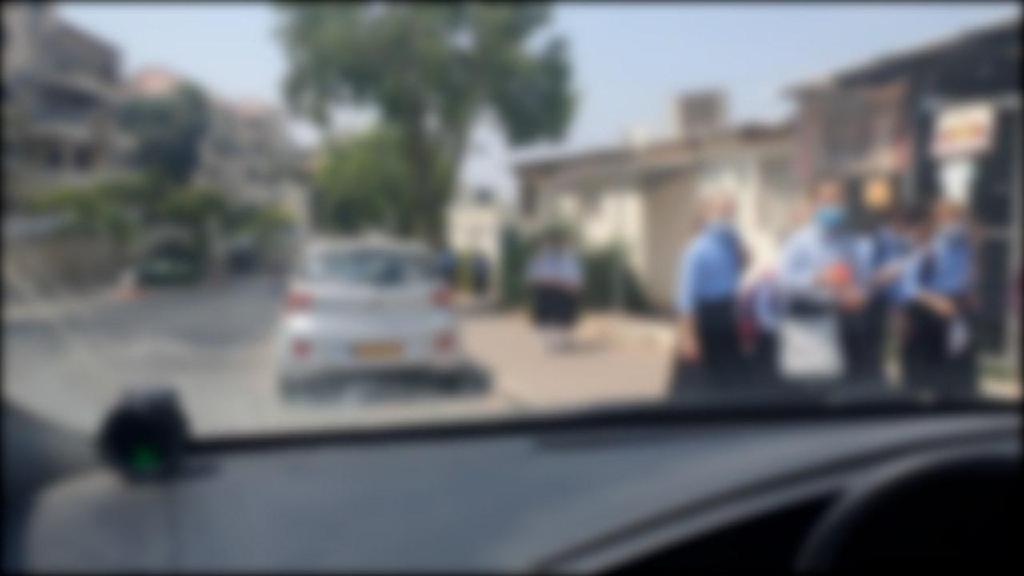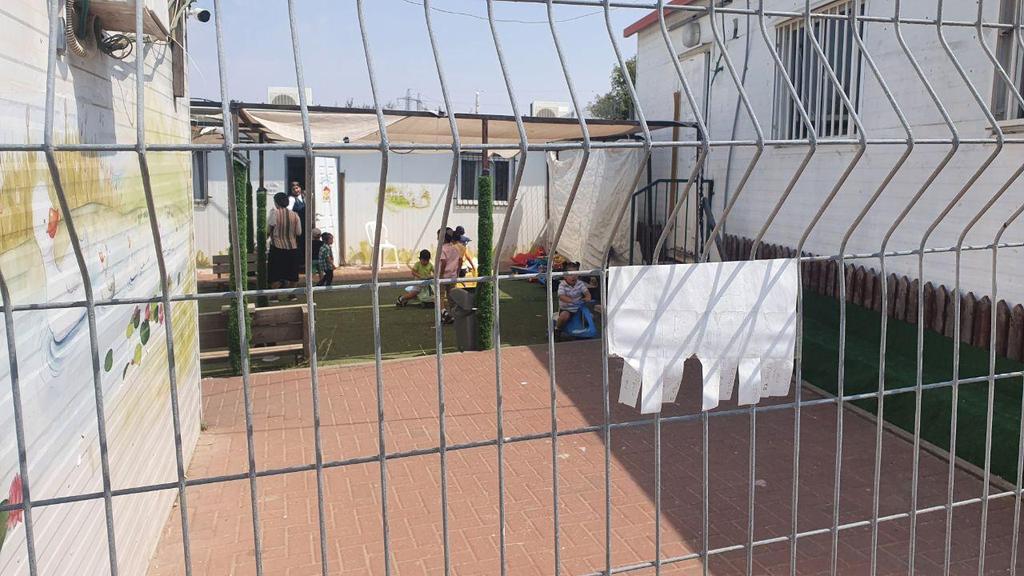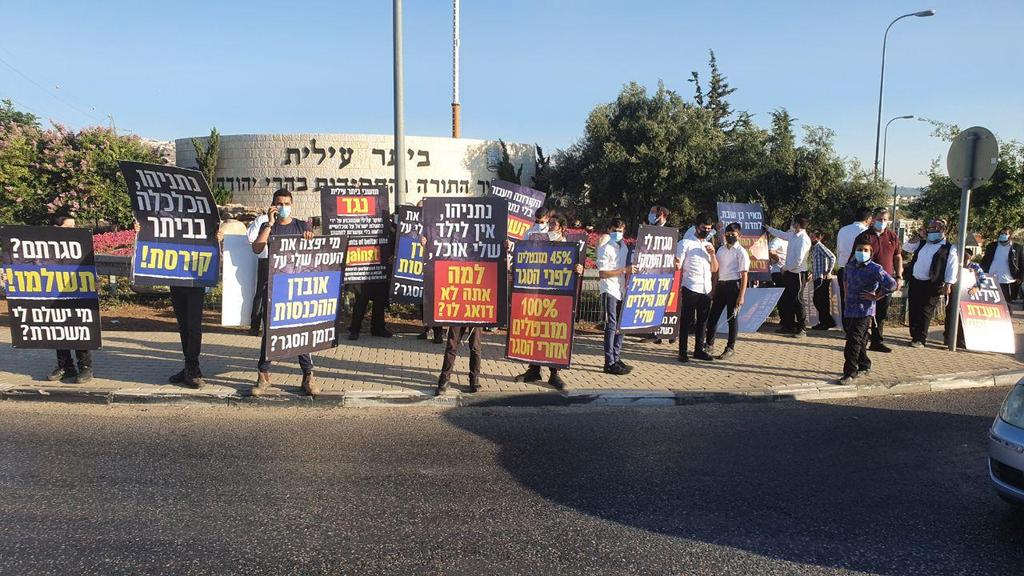The Haredi settlement of Beitar Illit on Tuesday opened its schools on the first day of the academic year despite the Health Ministry's order for education facilities in communities with high infection rate to remain closed.
Coronavirus cabinet voted late on Monday that schools in 23 "red" cities and communities, where the COVID-19 infection rate is exceptionally high, will remain closed. The decision leaves more than 140,000 children of all ages at home. The ministers are set to hold another debate on whether to reopen schools in those areas on Thursday.
A representative of the community's education department told Ynet the institutions that opened are privately owned and it is up to the parents to decide whether to send their children to school.
However, locals who spoke to city council representatives had been explicitly told that school will reopen on September 1 as usual.
"I sent my two daughters to school this morning as usual," said one local. "That's what everyone did, school is operating as usual for us."
4 View gallery


A letter sent by Beitar Illit city council to the Health Ministry, asking them to re-designate the community
City council officials were furious at the decision to designate the town as a "red locality", indicating a high infection rate, and claimed it stemmed from discrimination against the ultra-Orthodox public.
"There is no school according to the authorities," said an official. "However, we are working to find out how Beitar Illit became a 'red locality' overnight, because the data clearly shows it does not fit the criteria."
Beitar Illit Mayor Meir Rubinstein sent a letter to Health Minister Yuli Edelstein demanding explanations as to why his town was designated as red.
"As of today, there are 187 [coronavirus] patients in Beitar Illit, and about half of them are at a [quarantine] hotel, while there are communities with many more patients than we have and had not been designated as red," Rubinstein wrote.
"There are currently 30 patients for every 10,000 residents in Beitar Illit. A simple examination shows that cities with 40 patients for every 10,000 residents should not be defined as red areas," he said, adding since there is no justification for the designation of the settlement as red, it must be immediately corrected.
Last month, locals protested a decision to impose a lockdown on Beitar Illit and Mayor Rubinstein accused Health Ministry officials of making decisions that are not based on hard data.
The closure was later lifted after a series of demonstrations.
Edelstein said on Tuesday the last-minute change stemmed from a late revision of the list of red localities.
"Many ministers asked why the decision came so late, I answered honestly. I instructed the ministry and [coronavirus czar Prof. Ronni] Gamzu to submit to me a list of red localities on Saturday. About a third of the list was changed. It is dynamic," said Edelstein.




